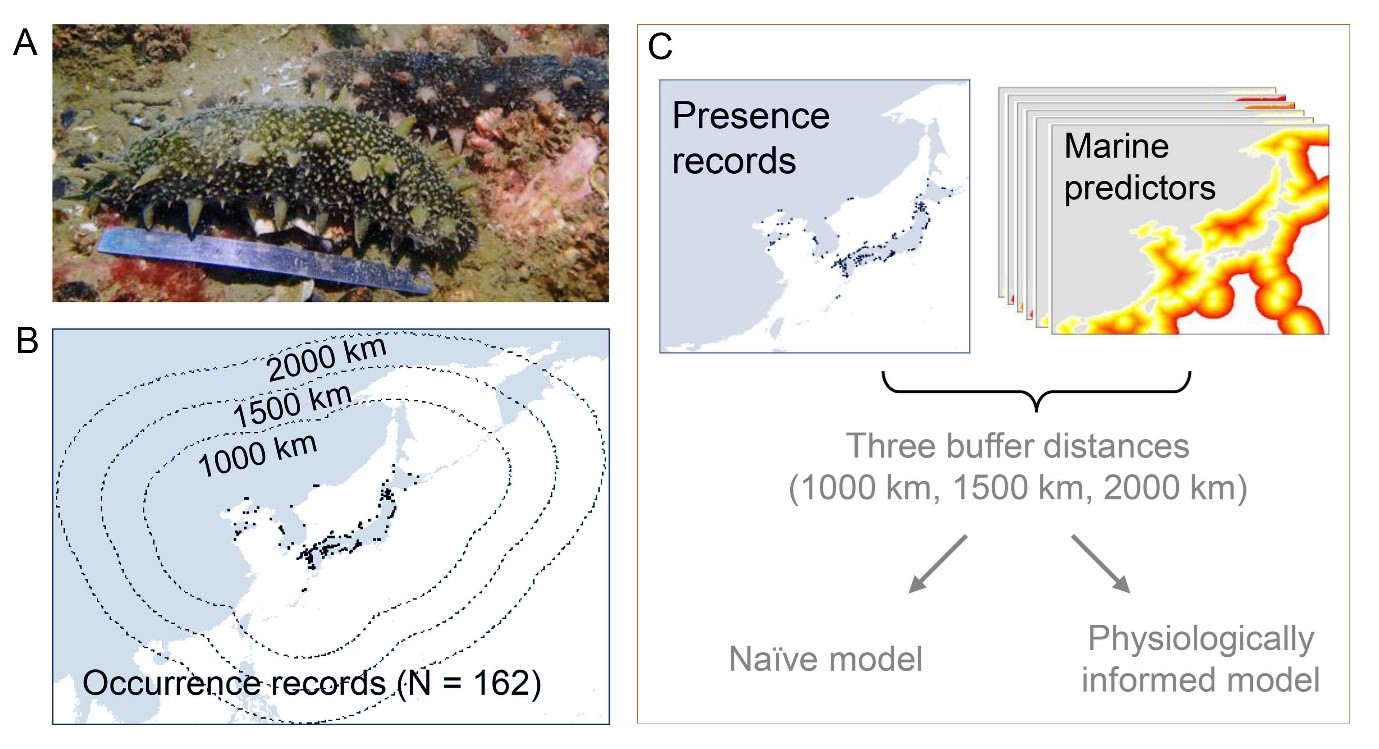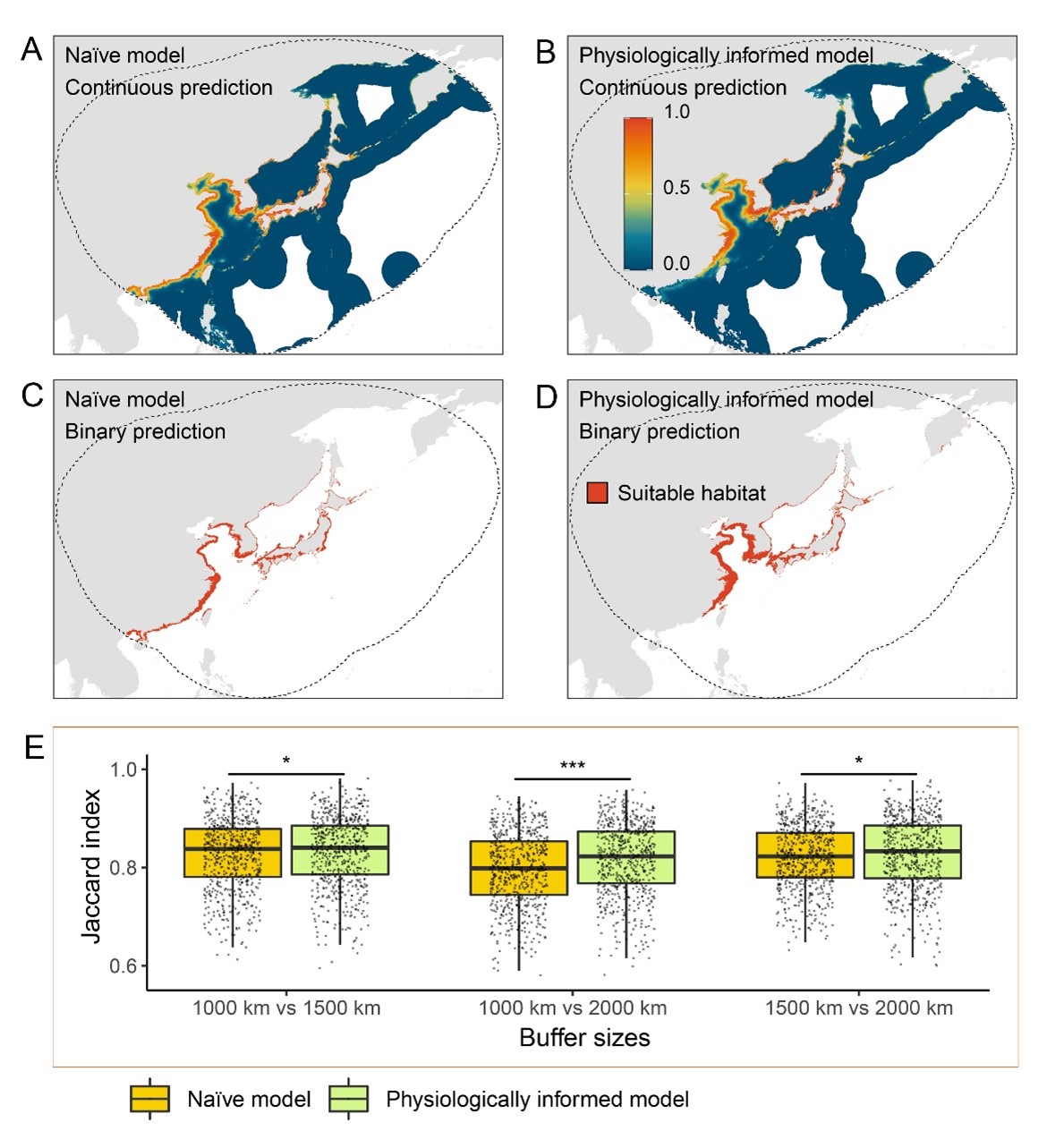Physiological knowledge and the Japanese sea cucumber – new publication

Species distribution models (SDMs) are important tools to estimate species’ geographic distribution, but these estimations can be biased when occurrences used for model training do not fully represent the environmental requirement of the studied species. In an international collaboration led by Zhixin Zhang from the Chinese Academy of Science and Jinxin Zhou from the University of Tokyo, researchers tested to what extent physiological knowledge on the environmental requirement of the species might influence SDM estimations if incorporated in the models. Ákos Bede-Fazekas, assistant professor in our department, is the co-author of the paper published in the D1-ranked scientific journal "Marine Life Science & Technology" (IF = 5.7). Focusing on a sea cucumber species distributed in the coastal ocean of East Asia, the researchers explored the importance of incorporating physiological knowledge into SDMs by calibrating two types of SDMs: a naïve model that solely depends on environmental variables, and a physiologically informed model that further incorporates physiological information as priors.
Compared with naïve models, the physiologically informed models successfully captured the negative influence of high temperature and were less sensitive to the choice of calibration area. The naïve models resulted in more optimistic prediction of the changes of potential distributions under climate change than the physiologically informed models. The findings highlight benefits from incorporating physiological information into SDMs, namely mitigating the uncertainties associated with the choice of calibration area.



